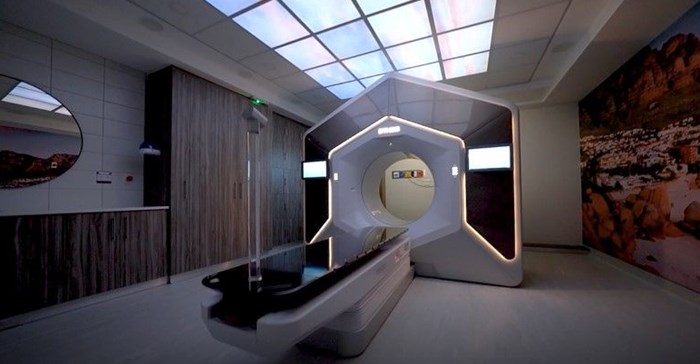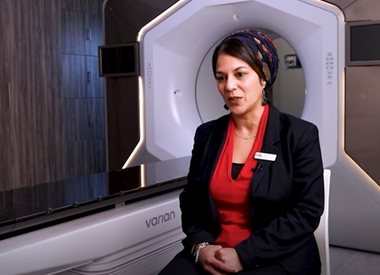The Life Oncology unit at Life Vincent Pallotti Hospital has launched its first AI-backed radiotherapy service - the first of its kind in sub-Saharan Africa.

Source: Supplied.
Manufactured by Varian, an American radiation oncology treatments and software maker based in California, the radiotherapy system uses artificial intelligence (AI) and adaptive treatment to adjust cancer treatments in response to patients’ unique, changing needs.
Known as Ethos therapy, the system allows radiotherapy specialists to treat cancer patients with the most accurate, precision techniques.
“Adaptive therapy provides the ability to adapt the treatment plan based on tumour and anatomical changes. The goal is to better target the tumour, reduce radiation dose of healthy tissue, and potentially improve overall outcomes,” says Dr Louis Kathan, Life Healthcare’s chief medical officer in South Africa.
Kathan, who is also a radiation oncologist with close to 15 years of patient-treatment experience, explains that the streamlined workflow of the new system is enabled by its AI-driven planning and contouring capabilities.
“The system allows us to use AI to adapt to a patient’s anatomy. This allows us to make decisions more efficiently on a daily basis based on each patient’s individual needs. The ability of the machine to deliver on-couch adaptive treatment puts the patient at the centre of care.
“Clinicians globally have waited for the day when they have the ability to adapt radiotherapy treatments to changes in patient anatomy.

Source: Supplied. Kulthum Ismail, unit manager: radiation therapy at the Life Oncology unit based at Life Vincent Pallotti Hospital.
"Typically changes to a patient’s treatment plan due to changes in anatomy require time-consuming re-scanning and re-planning between treatment sessions, which could take up to two days.
"The radiotherapy adaptive technology allows the treatment plan to be adjusted daily, in real-time and the treatment to be planned and administered, all within 20 to 30 minutes," says Kulthum Ismail, unit manager: radiation therapy at the Life Oncology unit based at Life Vincent Pallotti Hospital.
AI's point of differentiation in oncology treatment
The planning and treatment all happen in one session, making it a faster process compared to existing radiotherapy technology, although Kulthum added that current systems being used still have a big role to play in oncology treatment.
The Life Oncology unit at Life Vincent Pallotti Hospital has made susbtantial investments in technology in recent years that place it at the forefront of advanced treatments in surgical-, medical-, gynaecological- and radiation oncology.
These advanced systems allow for, among others, image-guided radiosurgery for tumour-motion monitoring, minimally invasive frameless radiosurgery for patient comfort and multiple brain mets stereotactic radiosurgery that precision delivers treatment that quickly and simultaneously targets more than one cancer lesion in the brain.
A targeted, personalised approach
The AI-backed radiotherapy system at Life Vincent Pallotti Hospital is already being used to treat patients with cervical-, rectum-, lung- and prostate cancer.

Source: Supplied.
"It offers a faster and more personalised, targeted approach to radiotherapy treatment which means we really are placing the patient at the centre of care,” said Adam Pyle, Life Healthcare’s chief executive officer for South Africa.
“It’s our way of navigating our patients into the future of oncology care as we continue to live our purpose of making life better.”
Pete Wharton-Hood, group chief executive for Life Healthcare added that the group’s aspiration to be a leading cancer-care provider has taken a substantial step forward with the expansion at the Life Oncology unit at Life Vincent Pallotti Hospital in Cape Town.
“As a people and patient-centric organisation, we continuously seek ways to build on our existing technological offerings and services to consistently improve patient outcomes, enhance our patient experience and drive accessible and affordable healthcare.
"This means we get to better support our specialists with whom we partner, so that together we continue delivering improved patient quality, patient experience, efficiency, and clinical excellence.”






































